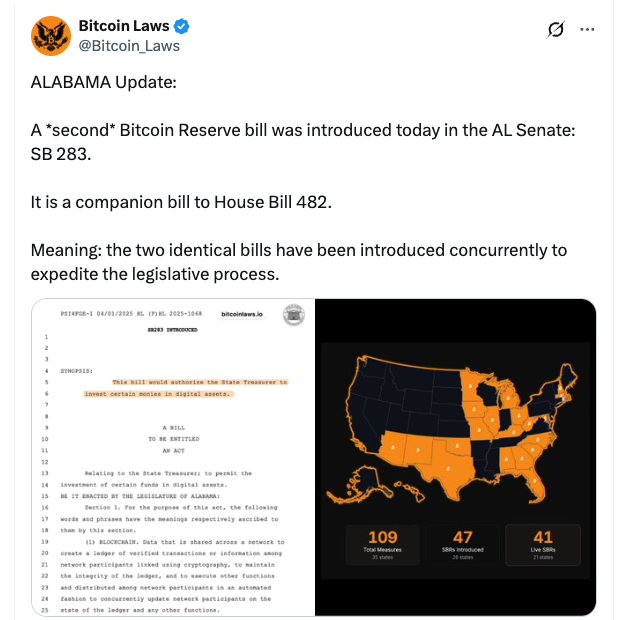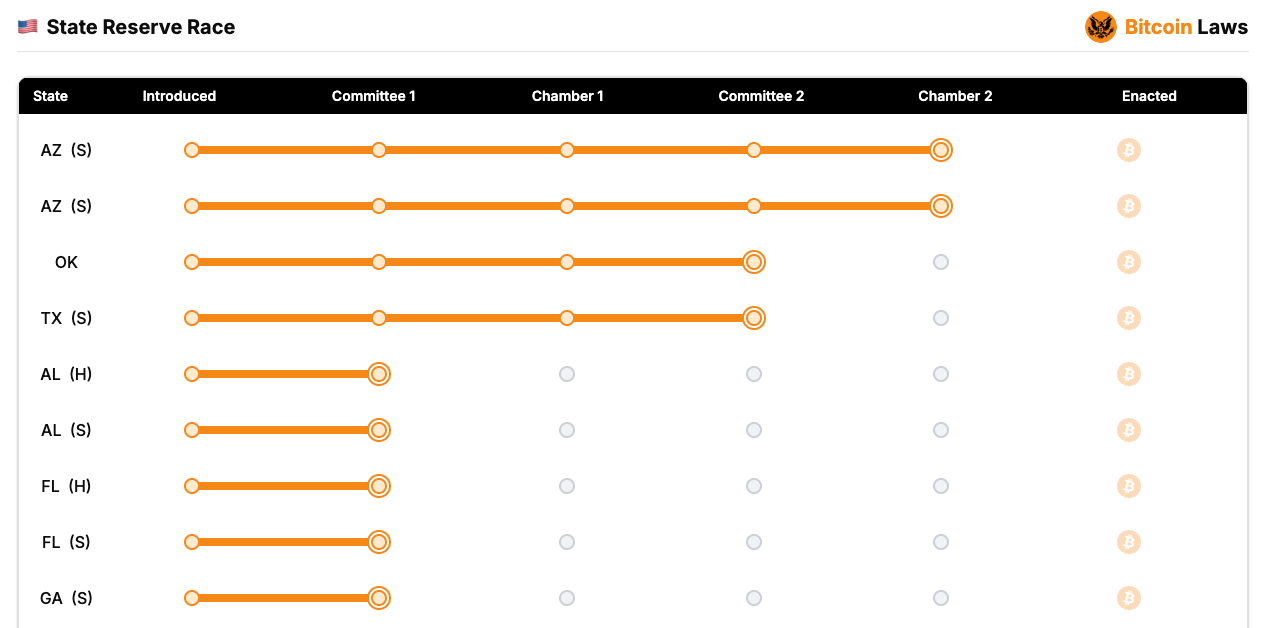Legislators in the US states of Minnesota and Alabama have introduced companion bills to existing legislation that would permit both states to acquire Bitcoin.
The Minnesota Bitcoin Act, designated as HF 2946, was brought before the state’s House by Republican Representative Bernie Perryman on April 1. This followed an earlier introduction by GOP state Senator Jeremy Miller on March 17.
On the same day in Alabama, Republican Senator Will Barfoot presented Senate Bill 283, while a bi-partisan group of Representatives, led by Republican Mike Shaw, filed the matching House Bill 482, which allows for state investment in cryptocurrencies, though it effectively focuses on Bitcoin (BTC).
Alabama bills do not specify Bitcoin
The Minnesota Bitcoin Act would enable the investment board of the state to allocate state funds into Bitcoin and other digital currencies, as well as allow state employees to include cryptocurrencies in their retirement plans.
In addition, it would exempt cryptocurrency gains from state income taxes and provide residents with the option to settle state taxes and fees using Bitcoin.

Image Source
While the twin bills in Alabama do not explicitly mention Bitcoin, they would limit the state’s cryptocurrency investments to assets with a minimum market valuation of $750 billion — a threshold currently only met by Bitcoin.
26 Bitcoin reserve initiatives introduced across the US
It’s not uncommon in the US for identical bills to be introduced, as this strategy is often used to expedite the legislative process and facilitate quicker law passage.
So far, proposals to establish a Bitcoin reserve have been introduced in 26 states, with Arizona being the furthest along in the legislative process to enact such a law, according to recent data from a tracking site.

Arizona currently leads in the US states’ Bitcoin reserve initiatives.
Pennsylvania was among the first to propose a Bitcoin reserve bill back in November 2024. However, reports indicate that the effort was ultimately turned down, with similar proposals also failing in states like Montana, North Dakota, South Dakota, and Wyoming.
Related: New initiatives in North Carolina aim to include cryptocurrencies in the state’s pension system

Montana, North Dakota, Pennsylvania, South Dakota, and Wyoming are among the states that have rejected Bitcoin reserve proposals.
Reports indicate that “red states” like Montana may have encountered obstacles with Bitcoin reserve initiatives due to the political dynamics between the Democratic and Republican parties.
Additional reporting by Helen Partz.
Magazine: Financial pessimism in the crypto world is fading — It’s time to reignite ambitious visions
